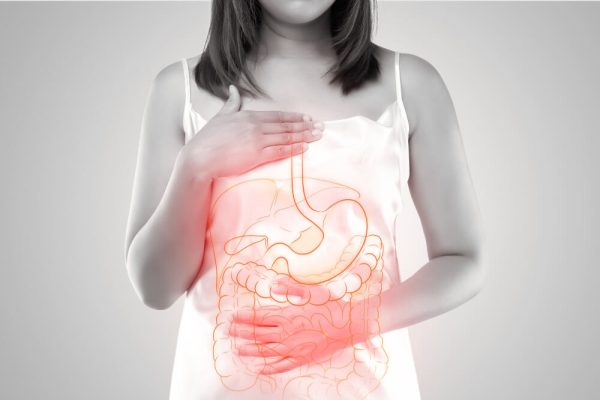Table of Contents
Nutrition Needs For Your Grateful Gums
You may be working hard to take care of your body but dental health is more important than most people realize. And nutrition plays a big role in this.
Our teeth may be small. But they, and our gums, are a lot more important to our health than many of us realize. Without teeth, we can’t chew. Imagine that. No more crunchy raw vegetables and fruits! No more nuts!
We need healthy teeth and gums to eat nutritious foods. And we need to eat nutritious foods for healthy teeth. As children, our diet influences how our teeth develop. And once we’re grown, with all teeth in place, what we eat plays a role in maintaining dental health. Photo
Dental distress
If we don’t take care of our teeth and gums, we risk tooth decay, gum disease, and even bone loss.
Meanwhile, the state of our teeth and gums can often signal systemic problems, including cardiovascular disease, celiac disease, diabetes, sinus infection, rheumatoid arthritis, irritable bowel disease, gastroesophageal reflux, alcoholism, and more. In fact, your dentist can sometimes diagnose these conditions before your doctor, making your dental checks even more important. If not already registered find a local one by visiting Dentists Nhere.me – there are also details of 24hr dentisits should you find yourself in need. If our eyes are a window to the soul, our teeth and gums are a window to our bodies.
Nutrient deficiencies & oral health
Mucosal cells in our mouths turn over within three to seven days. So nutrient shortfalls or excesses will show up in mouth tissue before they show up anywhere else.
Periodontal disease is associated with lower blood levels of vitamins and minerals. And getting enough of specific nutrients can be important to successful treatment.
What do you need for healthy teeth and gums, and why? Here’s a handy chart.
| Nutrient | What you need it for |
| Protein | Tooth structure, mucosal/connective tissue development, and immune function. |
| Calcium | Tooth structure; may enhance enamel remineralization. |
| Phosphorus | Tooth structure. |
| Zinc | Mucosal/connective tissues and immune function. |
| Antioxidants | Mucosal/connective tissues and immune function. |
| Folate | Mucosal/connective tissues and immune function; low levels are associated with periodontal disease. |
| Iron | Mucosal/connective tissues and immune function. |
| Vitamin A | Mucosal/connective tissues and immune function. But be aware that getting too much from supplements may result in gum problems. |
| Vitamin C | Collagen maturation and to maintain the integrity of the periodontal ligament; mucosal/connective tissues and immune function. |
| Omega-3 fats | Mucosal/connective tissues and immune function; modulates the inflammatory response. |
| Vitamin D | Mucosal/connective tissues, immune function; may enhance enamel remineralization. |
| B vitamins | Epithelial cell turnover. |
What to eat or avoid – Photo
- Eat a mostly whole foods diet with lots of lean protein and fresh vegetables.
- Avoid most processed foods, especially those that are high in simple sugars.
- Take your fish oil.
- Here are a few foods, nutrients, and/or supplements that may play a specific role in oral health.
Probiotics
Probiotics may help to decrease gingivitis and plaque; bacteria in fermented foods might suppress the growth of pathogens in the oral cavity. One study showed that consuming fermented dairy was associated with less periodontal diseases. Probiotics from any source could be helpful in a similar way.
Cranberries
Cranberries and other plant foods rich in anthocyanins (such as blueberries, red cabbage, eggplant peel, black rice, and raspberries) may prevent the attachment and colonization of pathogens on host tissues (including teeth). Some studies even show that cranberry extract-infused mouthwash improves dental health!
Chewing gum with pycnogenol
Gum made with pine bark or sap has been shown to decrease plaque and bleeding gums. Great-Grandpa’s remedy really works!
Soy
A diet that includes soy may help to reduce periodontal disease.
Arginine
This important amino acid may alter oral pH and reduce chances of cavities.
CoQ10
Coenzyme Q10 is a substance similar to a vitamin. Our bodies need it to produce energy and it is found in every cell. Deficiencies may play a role in the development of periodontal disease.
Echinacea, garlic, ginger, and ginseng
Research shows that these plants help to inhibit growth of periodontal pathogens in test tubes. But human studies are still lacking, so we can’t draw firm conclusions about their benefits.
Whole foods first
Try to get the nutrients mentioned above from whole foods. Unless you have a known deficiency, supplements should not be necessary. Keep in mind that if you’re a chronic dieter or you’ve had bariatric surgery, deficiencies are always more likely. Check with your doctor.
Fluoride
The mineral fluoride helps to prevent decalcification in our bodies. In other words, it helps us absorb and use calcium effectively.
It also acts topically on teeth to promote their surface health. Fluoride in saliva may help to promote remineralization of enamel.
In fact, getting enough fluoride is more important than reducing sugar when it comes to preventing cavities.
Body fat & oral health – Photo
Adipose tissue
In obesity, excess adipose (fat) tissue often gets deposited in places where it shouldn’t be, such as the liver. Dental health is no exception.
Obesity is correlated with adipose tissue being deposited as a lipoma (essentially, a tumour-like mass made of fat) into in the oral cavity, such as inside the lips or cheek (buccal mucosa), on the tongue, or into the salivary glands (sialipoma).
Aging & oral health
Our risk of periodontal disease goes up as we age. But the longer we maintain good oral health, the better our quality of life will be.
It’s not clear what exactly causes oral disease with age. Theories include wear and tear on teeth/gums, medication use, financial changes (leading to less preventive treatment), other chronic diseases associated with oral health, and/or immunological changes.
What is clear is that taking good care of our teeth and gums at every age is important.
Sugars & oral health
It turns out that the sheer amount of sugar we eat may be less harmful to dental health than the frequency of consumption. That’s why sugared sodas and energy drinks are so dangerous.
Whether frequency or amount of sugar intake is key, one thing is for sure: A diet built around refined and processed carbohydrate foods can lead to tooth decay and gingival inflammation.
Other sweeteners
Artificial sweeteners like sucralose (Splenda) and aspartame (Equal) don’t seem to promote periodontal disease or cavities. Sugar alcohols, such as xylitol or erythritol, don’t seem to influence oral health. Actually, chewing gum containing the sugar alcohol xylitol after meals may even decrease your risk of forming cavities.
Recommendations
Other than cleaning your teeth and flossing, there are other simple tips on improving your health overall.
- Drink green tea. Drinking green tea improves the health of your teeth and gums, as it decreases inflammation, makes your mouth more alkaline, inhibits the growth of cavity-causing bacteria, prevents tooth loss, may slow progression of oral cancer, and freshens breath by killing odor-causing bacteria.
- Eat mostly whole, nutrient-dense foods that provide plenty of calcium, phosphorus, magnesium, vitamin K (especially K2) and vitamin D, such as leafy green vegetables, nuts, seeds, hard aged cheeses, plain yogurt, meats, natto, beans, mushrooms, fish, eggs, and organ meats all work here.
- Eat some raw, crunchy fruits and vegetables every day. Raw veggies clean your teeth to a degree (apples, carrots, bell peppers, etc).
- Maintain a lean/healthy body composition. Excess body fat can promote poor systemic health, including poor oral health.
- Increase the amount of arginine in your diet. Eat more spinach, lentils, nuts, eggs, whole grains, meat, seafood, and soy.
- Get regular exercise. Exercise seems to protect against periodontal disease.
When working hard to get a healthy body and mind, eating well can also give you the chance to gain the perfect smile!







